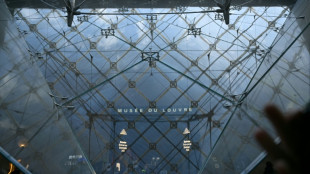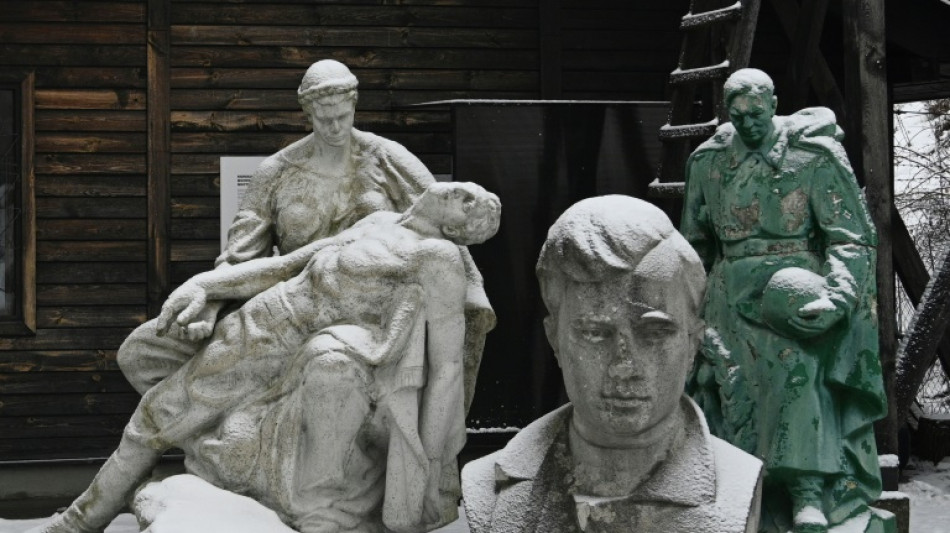
-
 Sixers rookie Edgecombe leads 'Team Vince' to NBA Rising Stars crown
Sixers rookie Edgecombe leads 'Team Vince' to NBA Rising Stars crown
-
Rubio at Munich security meet to address Europeans rattled by Trump
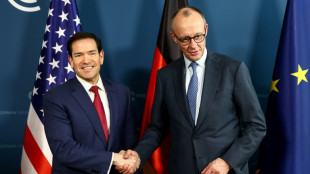
-
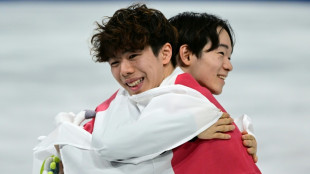 Medal-winner Sato says Malinin paid for 'toxic schedule'
Medal-winner Sato says Malinin paid for 'toxic schedule'
-
Carney offers support of united Canada to town devastated by mass shooting
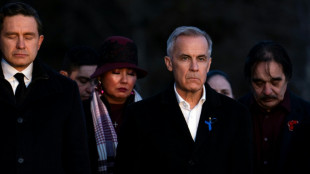
-
 All-in on AI: what TikTok creator ByteDance did next
All-in on AI: what TikTok creator ByteDance did next
-
Healthy Ohtani has Cy Young Award in sights

-
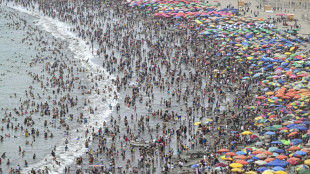 One of Lima's top beaches to close Sunday over pollution
One of Lima's top beaches to close Sunday over pollution
-
'Nothing is impossible': Shaidorov shocks favourite Malinin to make history
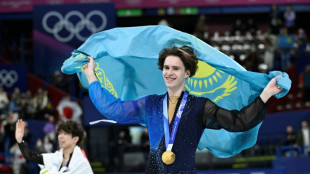
-
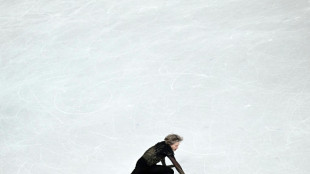 Malinin wilts at Olympics as Heraskevych loses ban appeal
Malinin wilts at Olympics as Heraskevych loses ban appeal
-
Bhatia joins Hisatsune in Pebble Beach lead as Fowler surges
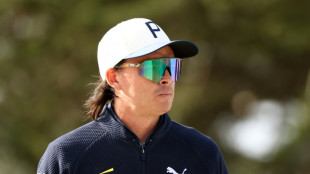
-
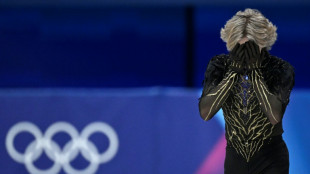 Malinin meltdown hands Shaidorov Olympic men's figure skating gold
Malinin meltdown hands Shaidorov Olympic men's figure skating gold
-
Top seed Fritz makes ATP Dallas semis with fantastic finish
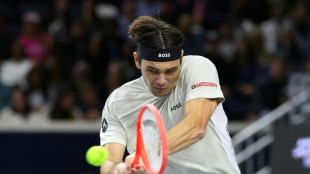
-
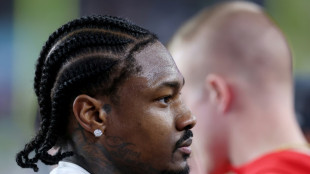 Patriots star receiver Diggs pleads not guilty to assault charges
Patriots star receiver Diggs pleads not guilty to assault charges
-
Havana refinery fire under control as Cuba battles fuel shortages
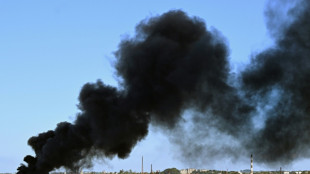
-
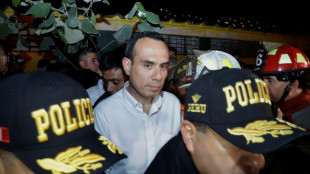 Peru Congress to debate impeachment of interim president on Tuesday
Peru Congress to debate impeachment of interim president on Tuesday
-
Snowboard veteran James targets 2030 Games after Olympic heartbreak
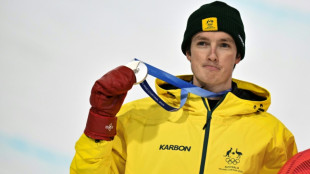
-
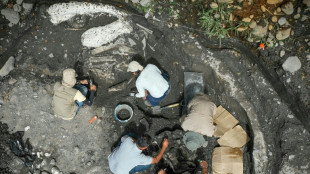 Costa Rica digs up mastodon, giant sloth bones in major archaeological find
Costa Rica digs up mastodon, giant sloth bones in major archaeological find
-
Trump says change of power in Iran would be 'best thing'
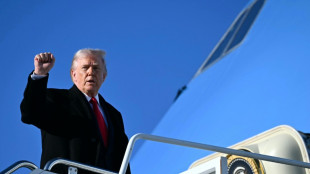
-
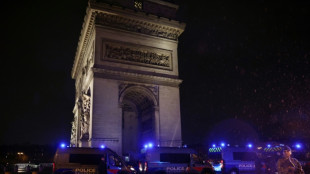 Paris police shoot dead knife man at Arc de Triomphe
Paris police shoot dead knife man at Arc de Triomphe
-
Japan's Totsuka wins Olympic halfpipe thriller to deny James elusive gold
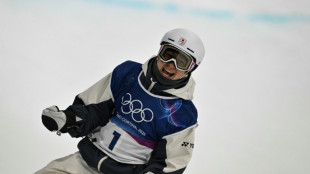
-
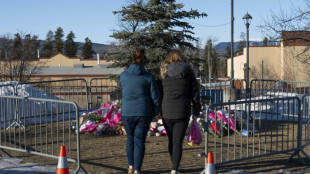 Canada's PM due in mass shooting town as new details emerge
Canada's PM due in mass shooting town as new details emerge
-
Neto treble fires Chelsea's FA Cup rout of Hull
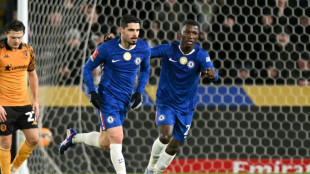
-
 Arbitrator rules NFL union 'report cards' must stay private
Arbitrator rules NFL union 'report cards' must stay private
-
Dortmund thump Mainz to close in on Bayern

-
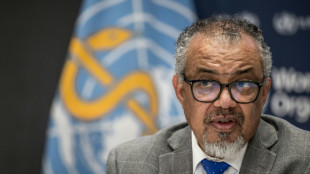 WHO sets out concerns over US vaccine trial in G.Bissau
WHO sets out concerns over US vaccine trial in G.Bissau
-
Skeleton racer Weston wins Olympic gold for Britain

-
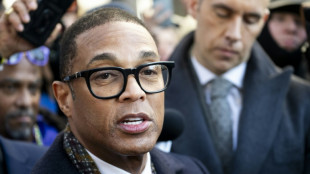 Ex-CNN anchor pleads not guilty to charges from US church protest
Ex-CNN anchor pleads not guilty to charges from US church protest
-
Berlin premiere for pic on jazz piano legend Bill Evans
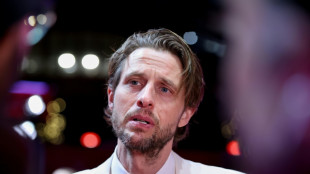
-
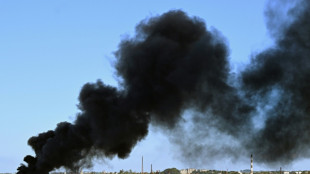 Fire at refinery in Havana as Cuba battles fuel shortages
Fire at refinery in Havana as Cuba battles fuel shortages
-
A Friday night concert in Kyiv to 'warm souls'
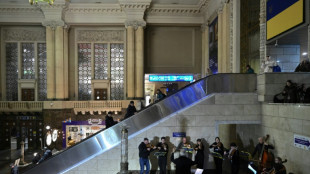
-
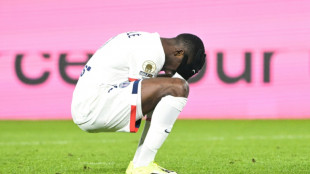 PSG stunned by rampant Rennes, giving Lens chance to move top
PSG stunned by rampant Rennes, giving Lens chance to move top
-
Japan's Totsuka wins Olympic halfpipe thriller as James misses out on gold
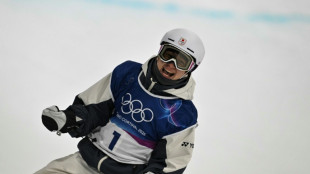
-
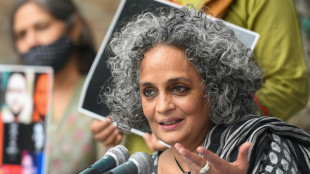 Indian writer Roy pulls out of Berlin Film Festival over Gaza row
Indian writer Roy pulls out of Berlin Film Festival over Gaza row
-
Conflicts turning on civilians, warns Red Cross chief
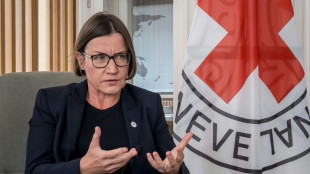
-
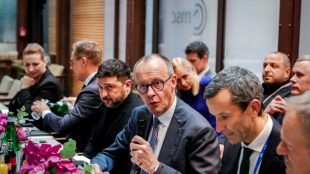 Europe calls for US reset at security talks
Europe calls for US reset at security talks
-
Peru leader under investigation for influence peddling
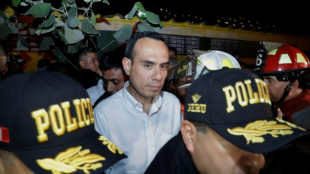
-
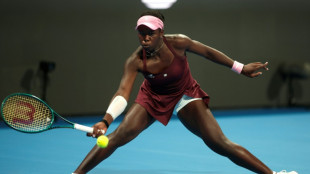 Rising star Mboko sets up Qatar Open final against Muchova
Rising star Mboko sets up Qatar Open final against Muchova
-
Canada PM to mourn with grieving town, new details emerge on shooter
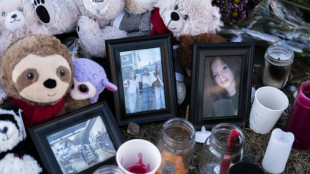
-
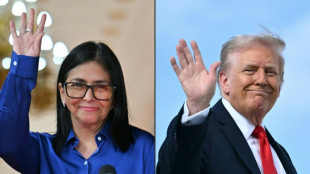 US waives Venezuela oil sanctions as Trump says expects to visit
US waives Venezuela oil sanctions as Trump says expects to visit
-
NBA star Chris Paul retires at age 40 after 21 seasons

-
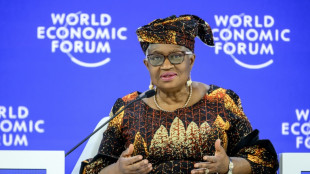 WTO chief urges China to shift on trade surplus
WTO chief urges China to shift on trade surplus
-
Vonn hoping to return to USA after fourth surgery on broken leg

-
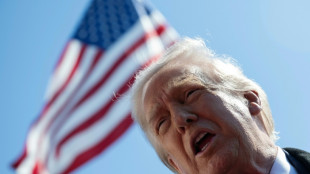 Trump sending second aircraft carrier to pile pressure on Iran
Trump sending second aircraft carrier to pile pressure on Iran
-
Heraskevych loses Olympics disqualification appeal, Malinin eyes second gold
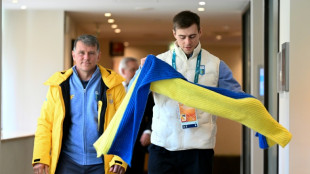
-
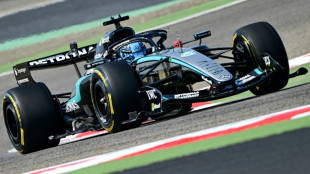 Mercedes have 'taken a step back': Russell
Mercedes have 'taken a step back': Russell
-
Madagascar cyclone death toll rises to 40, water, power still out
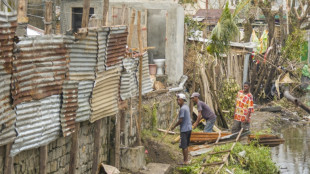
-
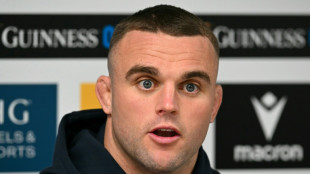 Earl says England inspired by last year's Calcutta Cup
Earl says England inspired by last year's Calcutta Cup
-
USA romp past Dutch in T20 World Cup to keep Super Eight hopes alive
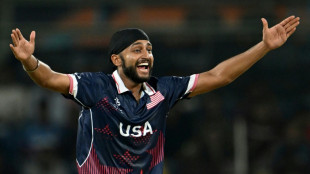
-
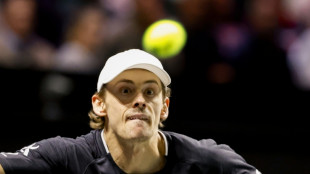 De Minaur scraps past local legend van de Zandschulp
De Minaur scraps past local legend van de Zandschulp
-
Ukrainian Heraskevych loses appeal against Olympics disqualification
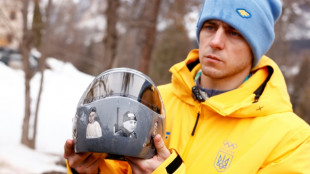

Ukraine debates future of downed Soviet monuments
In Ukraine's westernmost city of Lviv, a statue of the first woman in space, Valentina Tereshkova, sprawls on the ground, red paint splashed around her helmet.
The region bordering the European Union claims it was the first in Ukraine to topple all its Soviet monuments, in a nationwide ouster of symbols glorifying Kremlin rule.
But the removal of hundreds of statues has raised the difficult question of what to do with their remains, at a time when Russia's invasion has sparked a cultural and historical reckoning.
"In Ukrainian society, there's an ongoing debate: if we should preserve these monuments, what we should do with them," said Liana Blikharska, a historian and researcher at the Territory of Terror museum in Lviv.
Outside the museum, which features accounts of Soviet repressions and deportations of Jews, lie several downed statues -- stylised metal figures and severed body parts.
Blikharska said staff relented when local authorities asked them to house the relics since there was little other choice.
"There's no other museum or place to store them, so we said yes."
- 'Shared history' -
Downing statues is not new in Ukraine. The country toppled thousands honouring the Bolshevik revolutionary Vladimir Lenin and other Soviet monuments in the 1990s.
A new wave of removals began in 2014 after Russia annexed the Crimean peninsula, and then redoubled after the 2022 invasion.
Then last year, Ukraine passed a "decolonisation" law on renaming streets and removing monuments linked to Moscow.
Governor Maksym Kozytsky announced last month that Lviv had taken down 312 monuments, crossing the finish line first in the race to "de-communise."
One among them was that of Tereshkova, now an 86-year-old pro-Kremlin lawmaker. It was installed in 1983 and removed in November from a Lviv street formerly named after her.
For Andriy Godyk, the head of the regional working group on monuments, the campaign represents the "ideological front" of the war with Russia.
"Our generation is doing the work of our parents, which should have been done in the early 1990s," the 35-year-old said.
Anna Gerych, a journalist and co-founder of a group called Decommunisation of the Lviv Region, backed the campaign because she felt it was unacceptable for the monuments to remain when "people are dying at the hands of these same occupiers".
- Local opposition -
Lviv was part of Poland until World War II and had a relatively small quantity of Soviet architecture and symbols. Russian is not widely spoken.
But still, Godyk conceded they had encountered opposition in getting rid of Soviet monuments.
"There are indeed times when people stand in front of our equipment and say 'we will not allow this to be dismantled'," he said.
He said locals were hesitant to remove war memorials, especially those bearing relatives' names.
Others brought trucks and tractors to rip down monuments for free, he said.
Across the country, authorities have differed in their approach to the problem.
Officials in the capital Kyiv have moved monuments -- including statues of Russian poet Alexander Pushkin -- to a closed airfield.
Godyk said Lviv's decision to move monuments to a museum was "debatable," since thousands in the region died from Soviet repression.
The museum may take a few more monuments, "but that's enough for me," he said.
-'Story about people'-
Adding another layer of complexity to an already difficult issue, the Lviv museum staff said they were unsure how to display the monuments.
"We don't have a precise concept (of) how we should work with them," said Blikharska.
Senior researcher Yuriy Kodenko argued that people need to view such monuments to "inoculate" themselves against totalitarianism and prevent "erasing of memory".
The museum chose the "most important" monuments or ones by known artists, Blikharska said.
Space-themed monuments were among the last to go: in 2021, Lviv's city legislature decided the Tereshkova monument was non-ideological.
The museum also has parts of a 30-metre-long Monument to Military Glory from 1970.
One of the sculptors, Yaroslav Motyka, told Ukrainian TV its removal was "no great tragedy".
Blikharska said displaying the monuments helped tell the stories of those who created them, including members of the intelligentsia whose relatives were repressed under Soviet rule.
"We should preserve some of the monuments because of their cultural value but also because of the people who made them -- because of the artists," she said.
"It's always a story about people."
Godyk said Ukraine should have started systematically removing Soviet statues earlier because it would have undermined the Kremlin's argument that its troops were defending "Russian history or our common history".
"We have common history, but we don't have a common future."
O.Johnson--AMWN
